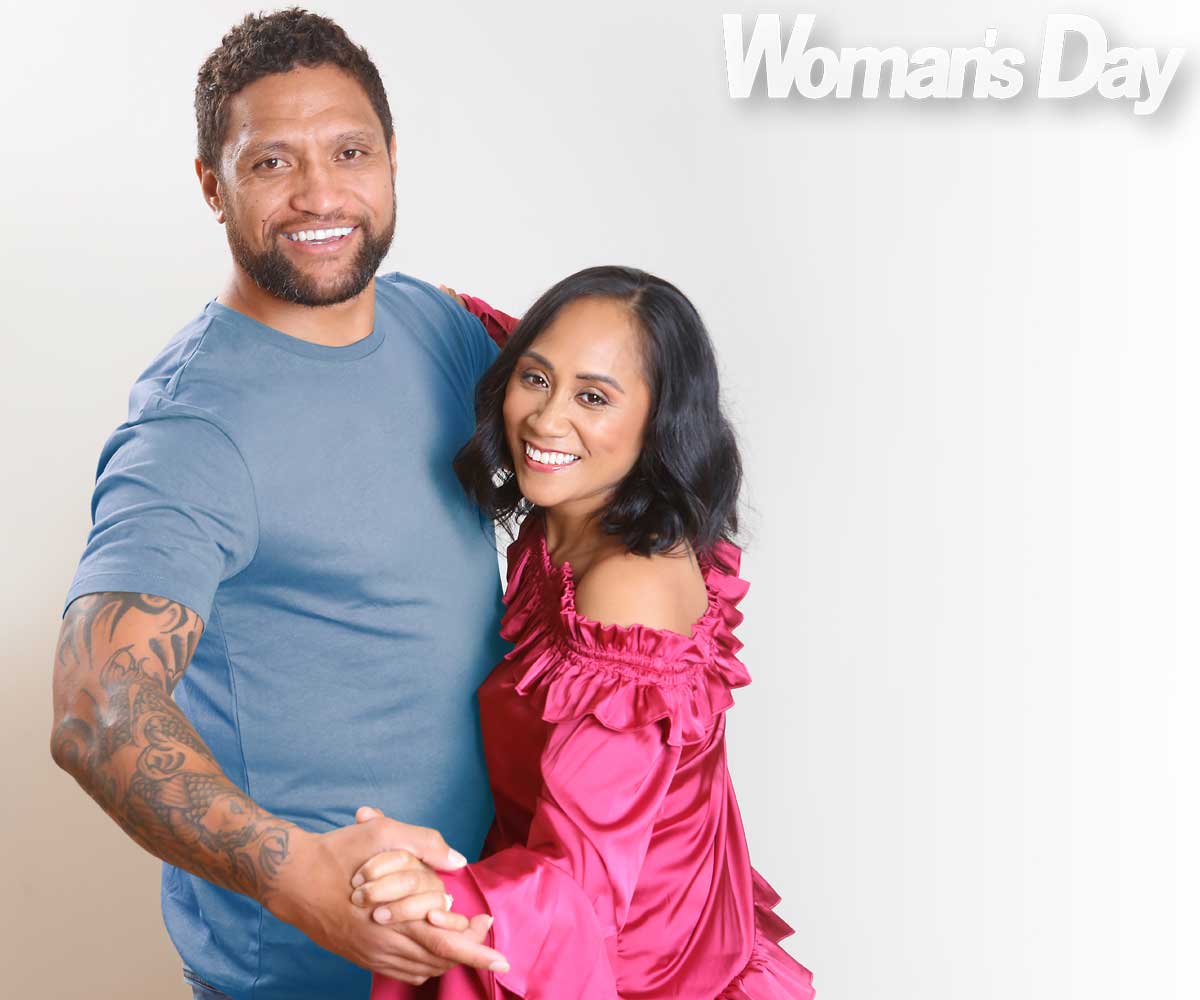When Manu Vatuvei began his journey on Dancing With The Stars he was laughed at by some friends and family. How does a big man go from smashing it up on the rugby league field to ballroom dancing?
It was difficult for some to comprehend why a former Warriors player (dubbed “the Beast” by commentators because of his fierce on-field play) would want to do something that seemed – and we stress the word ‘seemed’ – so feminine. And on live television, too.
But we doubt that anyone is laughing now.
Last night Manu danced the foxtrot with partner Loryn to Elton John’s Don’t Let The Sun Go Down On Me. He was so overcome by emotion he was unable to speak at the end of the performance.
Co-host Dai Henwood sensed his embarrassment and sensitively cut the post-dance interview short, allowing Manu a few moments to recover before he was filmed receiving the judges’ scores.
But Manu had nothing to feel embarrassed about. We sat on our couch at home in tears; we would like to thank Manu for that moving show of emotion.

Manu and Loryn’s dance was effortless and beautiful.
Moments like this on live television are powerful. They’re raw and rare and they can make a difference.
It’s not often we get to see Kiwis that we look up to, and especially Kiwi men, stripped back to their true emotions, especially when the setting seems so innocuous. Yet it’s these moments that show people there is something valuable in allowing ourselves to be vulnerable and expressive in the presence of others.
“When you dance we see the truth,” DWTS judge Rachel White said. “That was just wonderful,” judge Camilla Sacre-Dallerup summed up.

Glen and Vanessa performed a waltz in episode six that moved many to tears, including the judges.
Former All Black Glen Osborne evoked a similar response when he performed a waltz with partner Vanessa earlier in the season. Viewers and the judges were similarly moved, struck by the intensity of emotion and the dance’s honesty.
What Manu and Glen have been able to show New Zealanders, perhaps better than any mental health campaign encouraging men to speak up, is that men shouldn’t feel they have to hide their emotions; that there is a strength in tapping into your feelings and allowing yourself to feel them, in the process showing your softer side – and we should be encouraging and supporting our boys and men to do it more often.
Music and dance is recognised in the mental health arena as a means of helping people connect with and better understand their feelings, and perhaps an accidental side effect of this fun reality TV show is that Kiwis are seeing the benefits of that for themselves.
We hope we see more of this on Dancing With The Stars, and more of this on mainstream television in New Zealand. There is much to be gained from these poignant moments, not only for the cast but also for those at home watching.

.jpg)